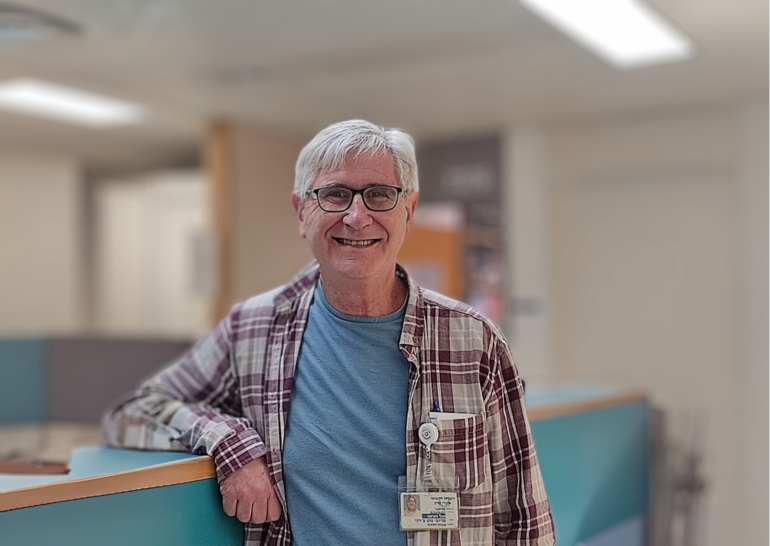There is a misunderstanding in what financial conflict of interests do on single people and what system implications they may have
Everyone is pointing the finger when it comes to the financial Conflicts of Interest (COIs) in medicine. The world of oncology appears to be splitted into two groups - the purists and the sinners: if you get enough COIs, you are a respectable sinner; if you get no COI, you are “just” a purist.
Some experts believe that accumulating financial COIs will make them influential and powerful. I understand that COIs are an epiphenomenon of how good a scientist is, and to what extent her or his leadership is transforming and influencing generations. In this perspective, COIs are another manifestation of the H-index, apparently.
There is a fringe of experts who feel that getting paid from the pharmaceutical industry will expose them to unconscious influence, and bias in making judgements. Purists are enslaved to their independent positions, eroded by the need for transparency like page boys of idealism, messengers of good conduct, vassals of value in healthcare.
We all serve causes, ideas, institutions – and this does not necessarily impact negatively on our capability to be good oncologists. I acknowledge I am not totally free from my ideals, and that I bring my conflicts to the discussions. This means that anyone brings interests, gets influenced and ultimately has COIs.
Why any people feel that financial COI are not tolerable, unacceptable or even immoral?
I think the original misunderstanding is in what the COIs do on single people, and what system implication they can have.
Lessons learnt from the tobacco industry
In 1950s, the tobacco industry started to shape public relations and engage key opinion leaders, including physicians, by creating a chain of financial COIs. The aim was simple: while evidence was maturing on the direct causative link between tobacco consumption and lung cancer, the industry urged to counteract the emerging narrative that tobacco smoking is dangerous by bringing experts to its side – the wrong one, obviously (Lancet.2022 Aug 20;400(10352):563-591).
A key pillar of the strategy was to fund academic research to (dis)prove the harm of the tobacco products, to generate controversy. The central focus of the scientific and medical discussions were industry-led research committees: tobacco companies became the major “sponsors” of medical research. The narrative around the harms of smoking were quickly vaporized into hype in the media and enthusiasm for the tobacco products from physicians, who were engaged for advertisement of the industry products. Their “mission”? To reassure the consumer that smoking tobacco was ultimately safe (Am J Public Health. 2006 February; 96(2): 222–232).
At that time, a reward cycle was built where everyone involved was getting some benefit. Perhaps this is why silence prevailed over common sense. And when the hype permeated the public, most of the damage was already done.
The tobacco industry example is an extreme one. All medical societies and public institutions have now banned tobacco companies from the public health dialogues, and health science academia cannot accept funding from tobacco industry anymore as it is considered non-ethical, potentially misleading and inappropriate. Nowadays the situation is much more regulated and experts can quietly sit in industry-led boards and get consulting fees without deriving inevitable influence of their opinions. I see the COIs are more innocent these days as they are unlikely behind advertising of medical products, but mainly aim to enhance progress in medical research with transparent public-private partnerships.
In addition, the evidence of a potential link between financial COIs and distorted judgements is very scarce, very controversial and commonly not reported by involved experts.
A very expensive hamburger on the menu
In 2019, one piece of greatest inspiration was published by Christopher M. Booth from the Queen's University in Kingston, Canada (BMJ.2019 May 3;365:l1939). Booth argues the only way to independent thinking is to stay free of financial COIs. He also adds that some COIs can arise from organized dinners to advertise health products, with hamburgers on the menu that are as expensive as 80 US $ each. How can physicians really barter their scientific dignity for a sandwich? I believe that Booth’s statements were too exaggerated, and I am sure I would never sell my independent thoughts for a fancy hamburger. But what if the COIs are more than that? Let’s say, they include career benefits, high-impact plug-and-go papers, promotion, loyalty to a network, success? Some benefit packages may be more attractive than the best fassona hamburger.
Again Booth, in a recent study, showed that the median amount of annual payment of industry per physician was $154,000 last year, that is almost 2,000 of those delicious hamburgers (JCO Oncol Pract.2022 Jul;18(7):e1164-e1169). Probably, some other hamburgers are just more expensive. In his paper, Booth did not reveal how much of those COIs was specifically provided with the aim to advertise health products, but we know that nearly 70% of the marketing budget of pharmaceutical companies – i.e. $20 billion - goes to persuading doctors of the benefits of drugs, of which $979 million for direct physician payments related to specific drugs (JAMA.2019 Jan 1;321(1):80-96).
I am not sure these figures say something on the impact of COIs on healthcare. Since any doctor is free to give paid consultancy to whoever is asking for an expert opinion, why should it be a problem if it is about a health product? The money will not influence your opinion I am sure people will be objective, that the reward is not all they want. We learnt so much from the tobacco company experience, there is no way that we will not learn from history and repeat mistakes.
Greed and fear
Someone has argued that COIs are motivated by greed and fear (JCO Oncol Pract.2022 Sep;18(9):e1384-e1387). There are plenty of examples where providers may have been skewed toward equally effective, equally safe but more expensive interventions when receiving consultancy fees: this means there is some sort of influence, and that if you take money, you are more prone to show enthusiasm (JAMA Ophthalmol.2016 Aug 1;134(8):888-96).
I recognise that “pure academic” consultancies for companies on how to pursue a drug development program is a different story, albeit representing a pretty tiny part of the investments in consultancies. You do not need much, honestly, to understand who gets fees to serve more patients-centric drug programs and address potential areas of patient-informed unmet needs, and who is essentially helping to shape narratives, build hype, and nothing really meaningful for science and medicine, patients and public health, beyond selfishness. Self-centered attitudes are often drivers of conflicted opinions and may yield a change of ideas based on the best offer of the month. Such a pattern is for me bitter and “indigestible” because it undermines the public spending and trust – in one word, our public role which should yield to better healthcare.
I feel my first role as a clinician is to serve the public trust. I cannot contemplate greed in a system that is supposed to assist vulnerable people. I believe that there is no compromise between one’s set of values and the commitment for best healthcare, but I am not a purist: I do not think all COIs are the same. To me, the unpardonable COIs are those matured to advertise health products: I truly cannot understand why a physician may want to mislead people, shape false narratives, distort data interpretation to get some revenues. It is disappointing when society puts efforts, investments and trust in “experts” who do not give anything in return but conflicted and biased outcomes, self-celebration, narcissism, slogans.
Here is the turning point: when COIs make you, then you make the COIs.





